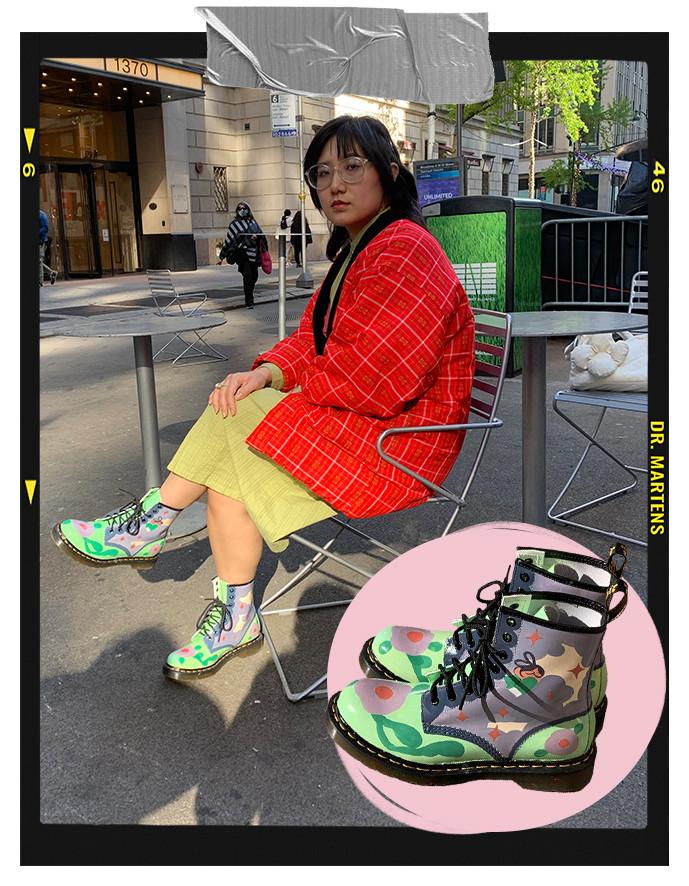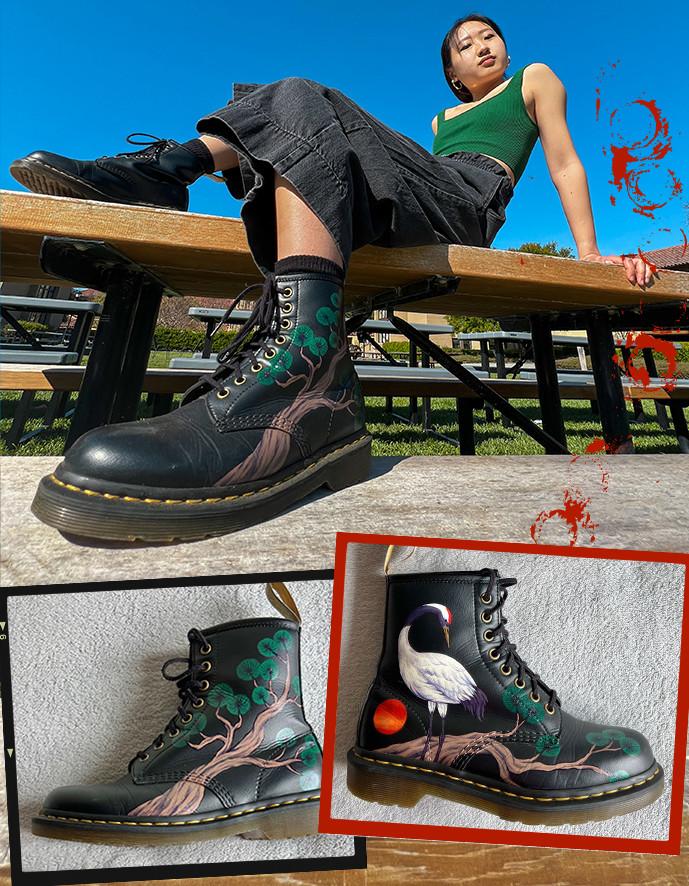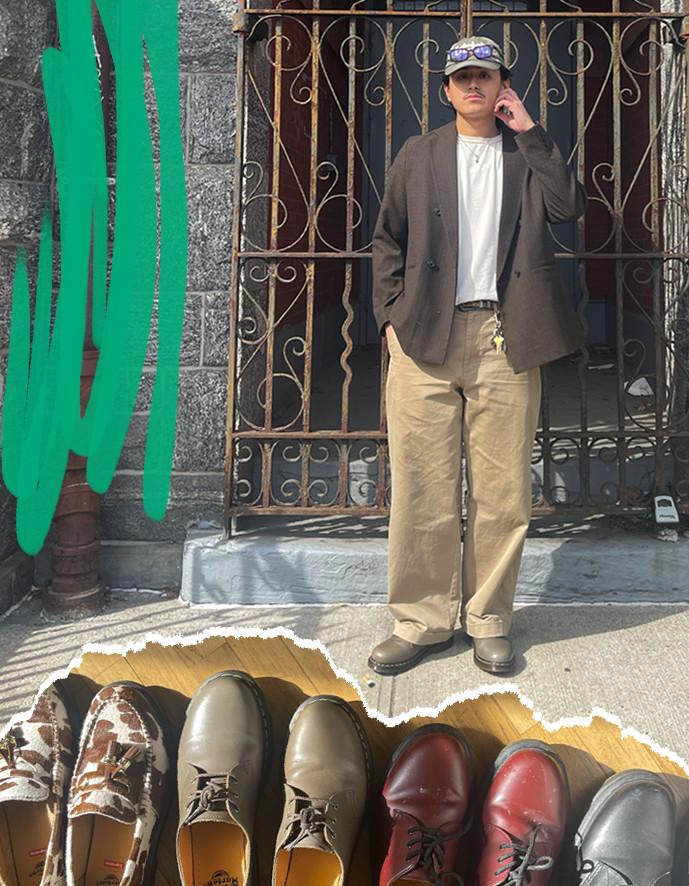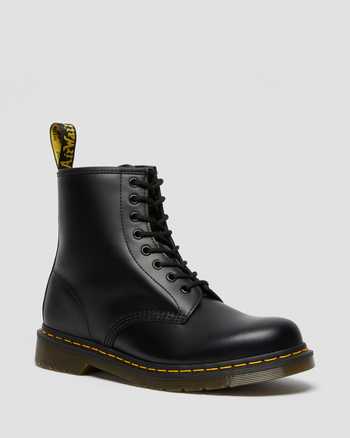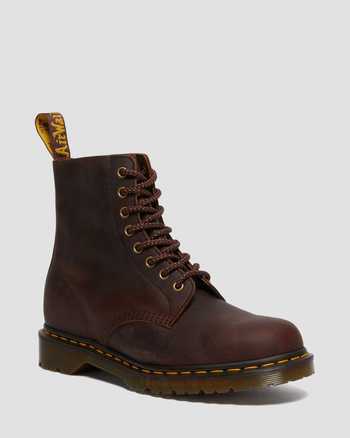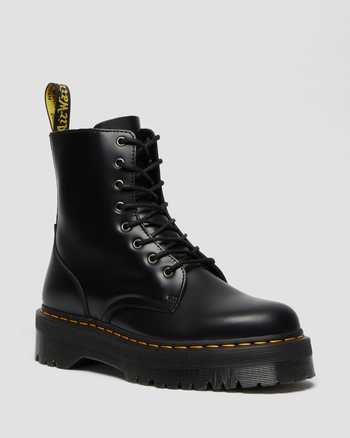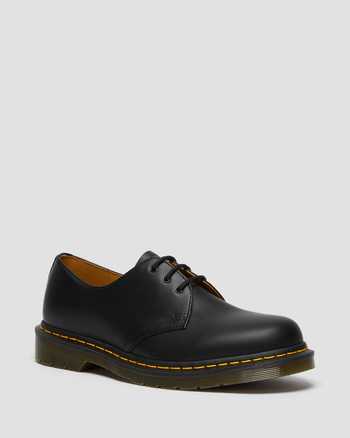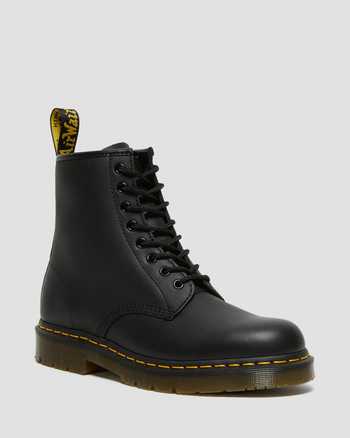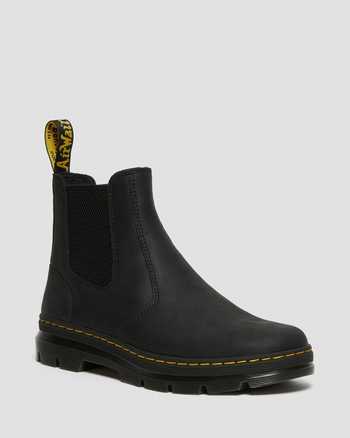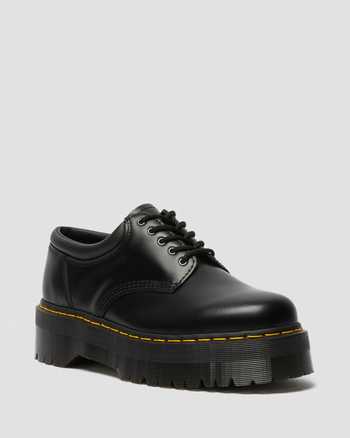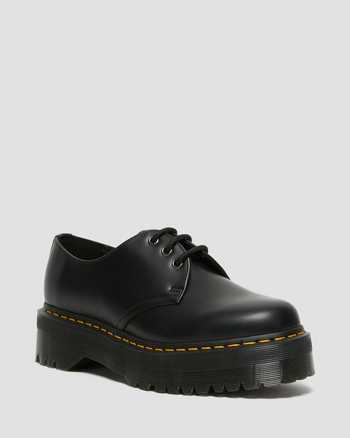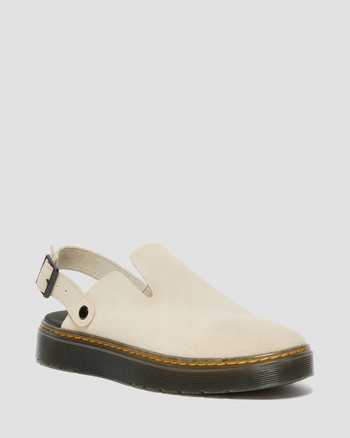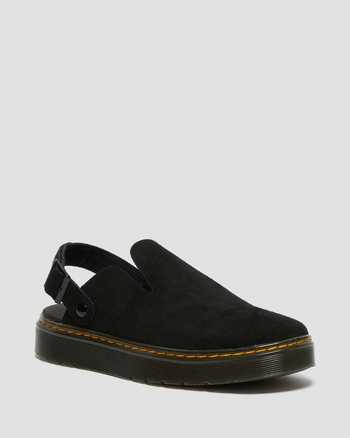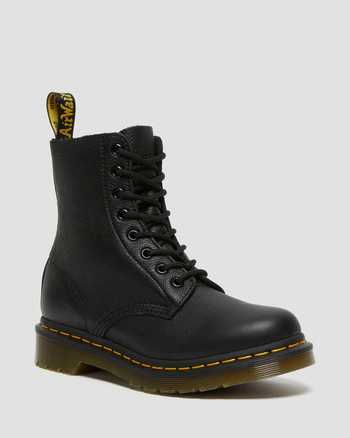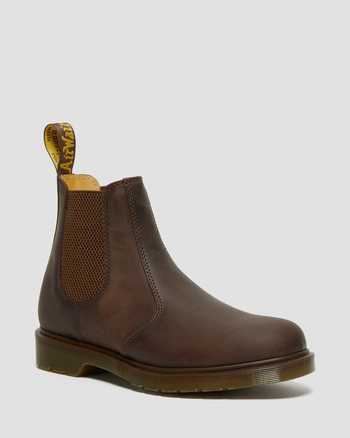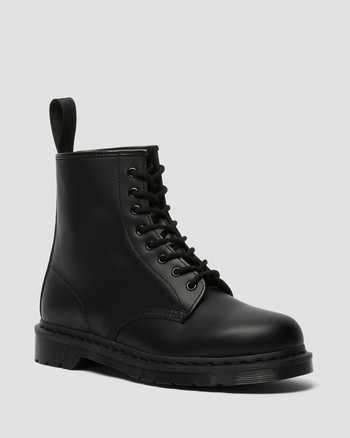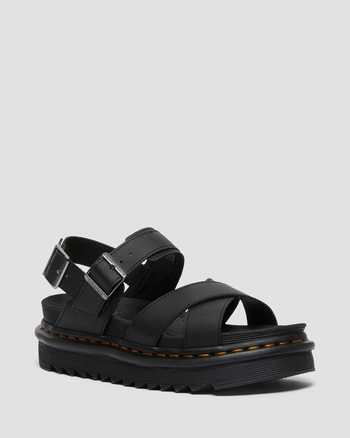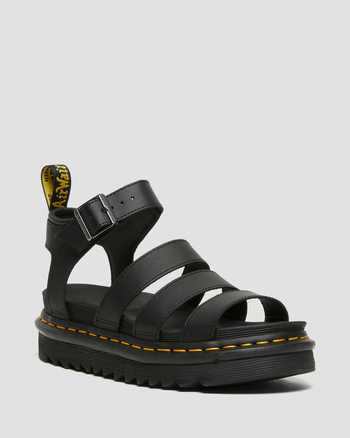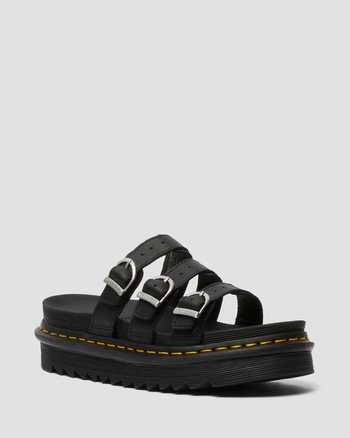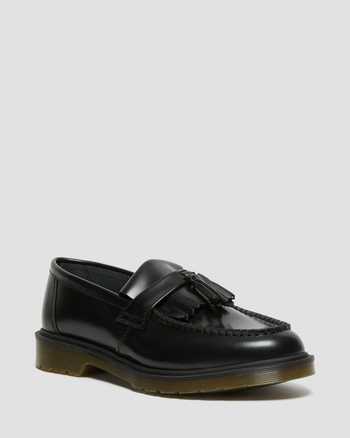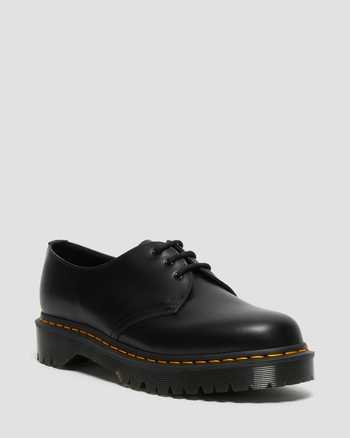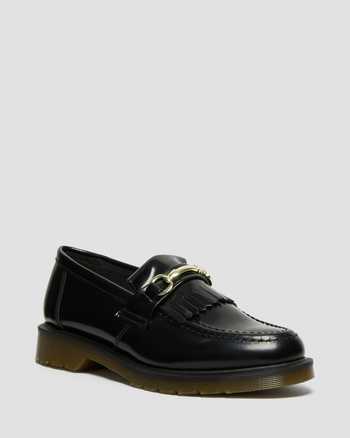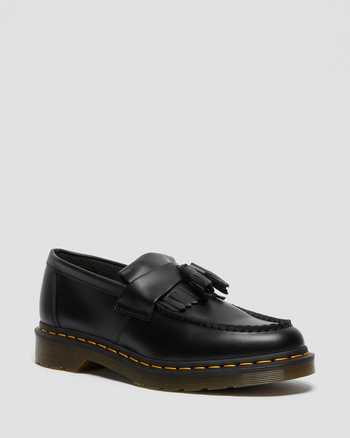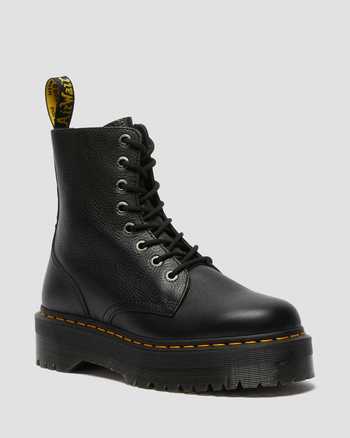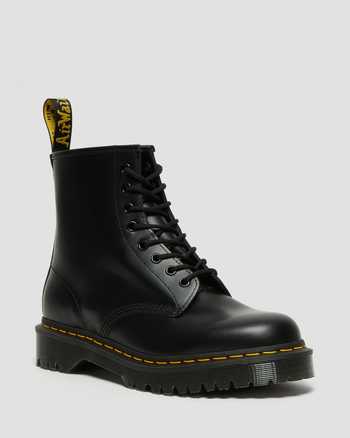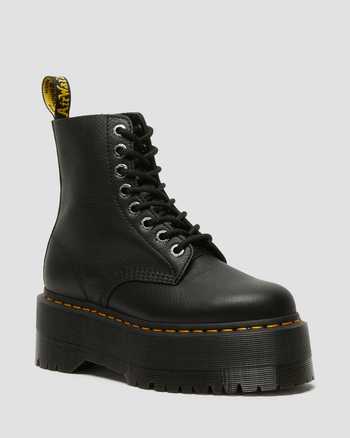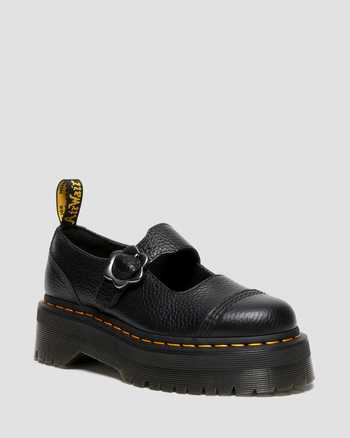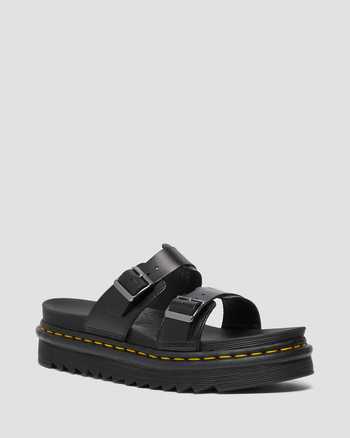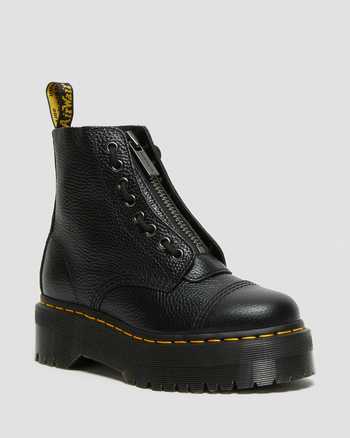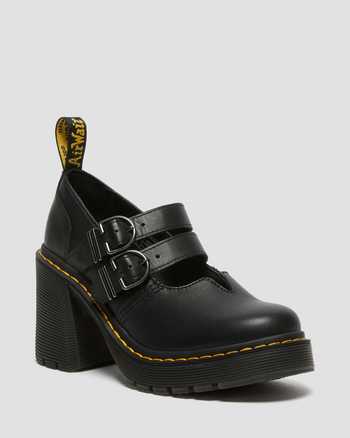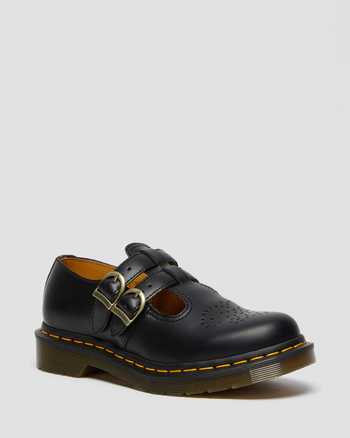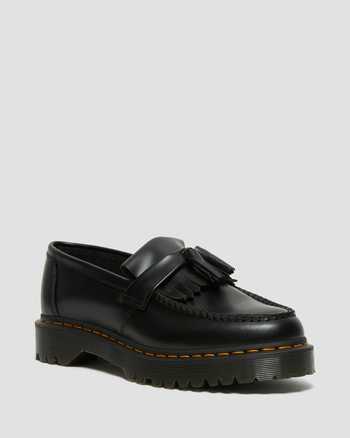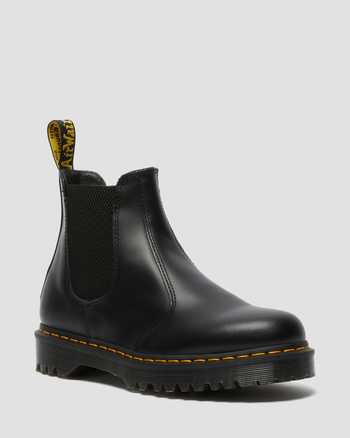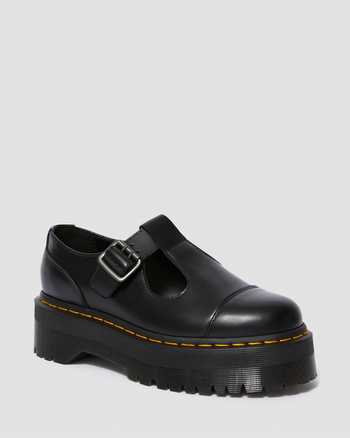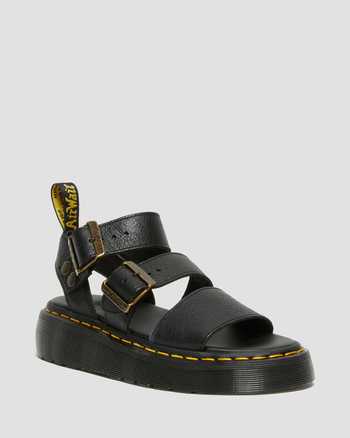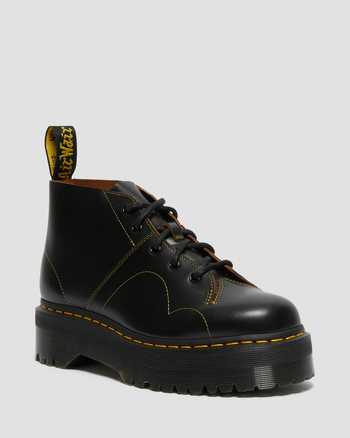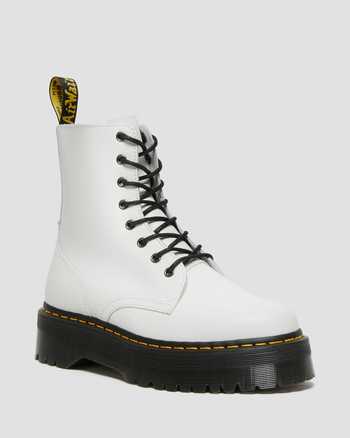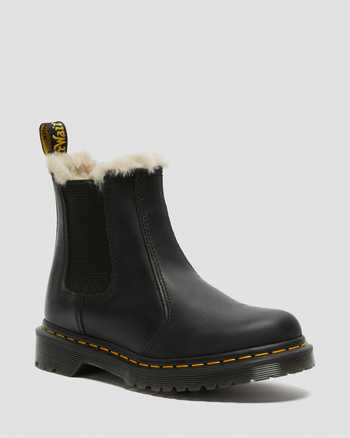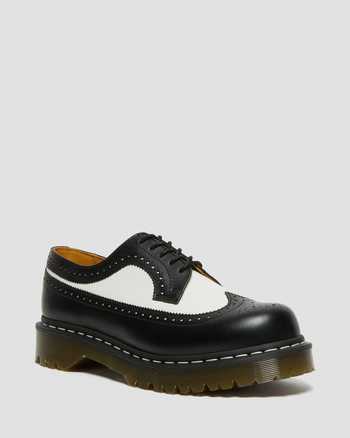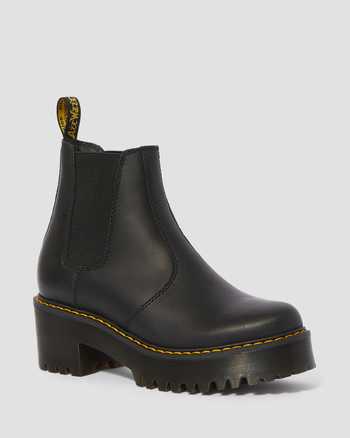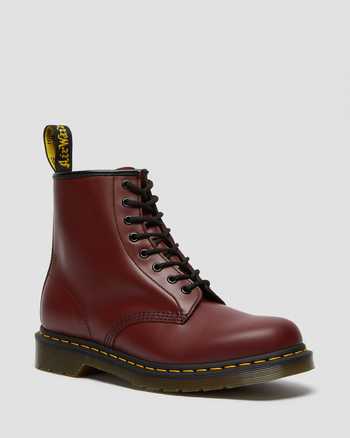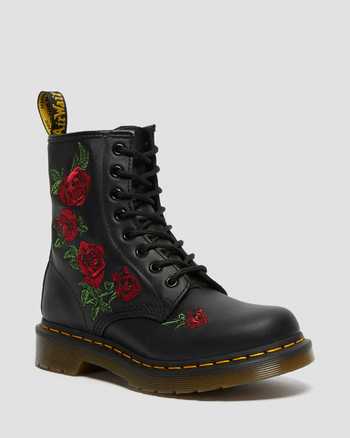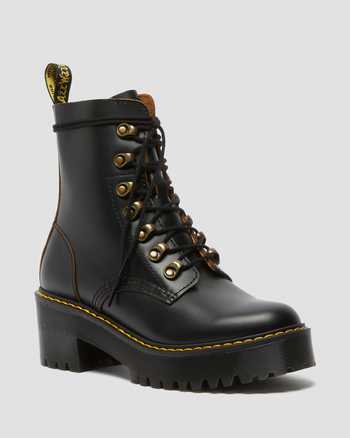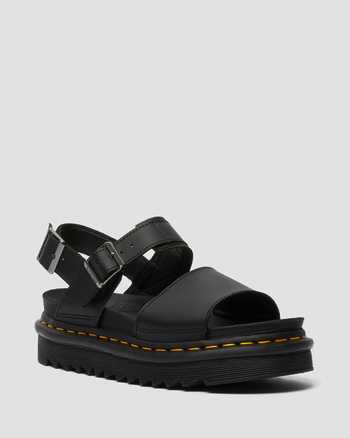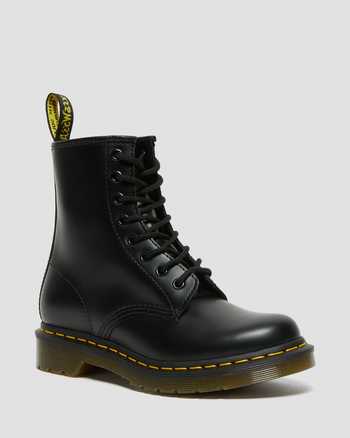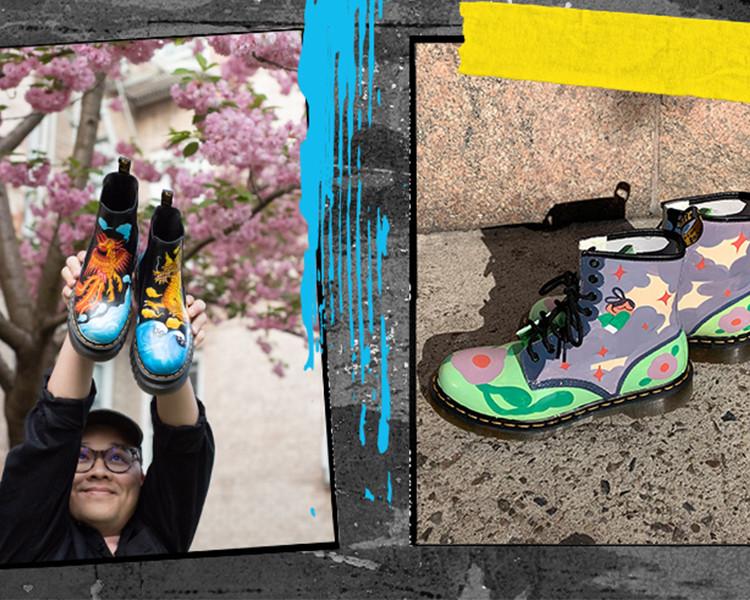
CELEBRATING ASIAN AMERICAN & PACIFIC ISLANDER HERITAGE MONTH
SARULA BAO (SHE/HER)
ILLUSTRATOR & GRAPHIC NOVELIST
My name is Sarula Bao! She/her. I'm an illustrator and graphic novelist based in Brooklyn. I riso print, run a small press called Endless Editions, and organize events and programming in the small press world, such as the Brooklyn Art Book Fair!
Instagram: @bao___haus
Website: www.sarula-bao.com
Tell us about your first pair of Docs
This is my first pair, which makes it extra special since I can really go the extra mile personalizing them!
How has your heritage shaped the person you are today?
I'm Chinese American, and it's quite hard to pinpoint exactly one or two things that have made me who I am. It's all holistic and enveloped in my upbringing in a Chinese household. As artists who participated in the 1989 Tiananmen Square protests, my parents raised me with strong ideals of living how I want to live, pursuing the dreams I want to pursue, and always supporting me in standing up for myself and for what's right. Due to the importance of family and community in Chinese culture and growing up surrounded by other Chinese immigrants who migrated to where we lived, I really value community, as well as the creation and mutual support between community members. I carry all of these values that I was raised by and put them into everyday practice in my life, always striving to put work back into my community.
What are some of your favorite traditions of your culture?
My favorite traditions come from the holidays Mid-Autumn Festival and Chinese New Year, where I get to cook all of my favorite foods and celebrate with my beloved family and friends.
What things make you feel closest to your heritage and culture?
Spending time in the Chinese community makes me feel closest, whether that's frequenting Chinatown, hanging out with Chinese or Chinese American friends, or spending time with my family, including literally visiting China. However, when I'm alone, or don't have access to interacting with other Chinese people, what makes me feel closest is connecting through art. As an illustrator and narrative thinker, I love art and stories. It's how I receive information from the world and communicate directly with it. It’s what I think about all the time! So, what makes me feel closest is consuming art in any form, whether it's traditional and historical, or modern, like fashion, books, and TV, even TikToks (Douyin)! Connecting to these stories and seeing and understanding more about Chinese people, culture, values, and society always makes me feel closer. I will often voraciously eat up Chinese content due to having that distance as a diaspora, so I deeply want to connect and understand, and I do that on my own through research.
Who/What is one of your biggest influences, and why?
As I've already discussed, my biggest influences definitely come from Chinese art. That's where my cultural heritage is, where memory and history are, and something that I deeply connect to. Artistically, I look at a lot of different sorts of Chinese art, from traditional landscape paintings, bird and flower painting, murals, ceramics, and folk art to Republican-era posters and branding, to more modern wuxia movies and tv shows, illustrations, hanfu revival, gufeng styles and a lot more!
What does Asian American and Pacific Islander Heritage Month mean to you?
It's honestly something I have only really heard about in the last several years. I think that it's a time to celebrate our cultures, shared experiences, and struggles across my own Chinese community, as well as find solidarity with other Asian and Pacific Islander communities as well. Every day I want to stay aware of what members of my local Chinese community are struggling through, which includes gentrification, hate crimes, wage theft, brutal 24-hour workdays, and many other labor issues. If we can celebrate our cultures and community, it doesn't only mean partaking in the fun and the positive; it also means doing what we can to support the most vulnerable members of our community.
My name is Sarula Bao! She/her. I'm an illustrator and graphic novelist based in Brooklyn. I riso print, run a small press called Endless Editions, and organize events and programming in the small press world, such as the Brooklyn Art Book Fair!
Instagram: @bao___haus
Website: www.sarula-bao.com
Tell us about your first pair of Docs
This is my first pair, which makes it extra special since I can really go the extra mile personalizing them!
How has your heritage shaped the person you are today?
I'm Chinese American, and it's quite hard to pinpoint exactly one or two things that have made me who I am. It's all holistic and enveloped in my upbringing in a Chinese household. As artists who participated in the 1989 Tiananmen Square protests, my parents raised me with strong ideals of living how I want to live, pursuing the dreams I want to pursue, and always supporting me in standing up for myself and for what's right. Due to the importance of family and community in Chinese culture and growing up surrounded by other Chinese immigrants who migrated to where we lived, I really value community, as well as the creation and mutual support between community members. I carry all of these values that I was raised by and put them into everyday practice in my life, always striving to put work back into my community.
What are some of your favorite traditions of your culture?
My favorite traditions come from the holidays Mid-Autumn Festival and Chinese New Year, where I get to cook all of my favorite foods and celebrate with my beloved family and friends.
What things make you feel closest to your heritage and culture?
Spending time in the Chinese community makes me feel closest, whether that's frequenting Chinatown, hanging out with Chinese or Chinese American friends, or spending time with my family, including literally visiting China. However, when I'm alone, or don't have access to interacting with other Chinese people, what makes me feel closest is connecting through art. As an illustrator and narrative thinker, I love art and stories. It's how I receive information from the world and communicate directly with it. It’s what I think about all the time! So, what makes me feel closest is consuming art in any form, whether it's traditional and historical, or modern, like fashion, books, and TV, even TikToks (Douyin)! Connecting to these stories and seeing and understanding more about Chinese people, culture, values, and society always makes me feel closer. I will often voraciously eat up Chinese content due to having that distance as a diaspora, so I deeply want to connect and understand, and I do that on my own through research.
Who/What is one of your biggest influences, and why?
As I've already discussed, my biggest influences definitely come from Chinese art. That's where my cultural heritage is, where memory and history are, and something that I deeply connect to. Artistically, I look at a lot of different sorts of Chinese art, from traditional landscape paintings, bird and flower painting, murals, ceramics, and folk art to Republican-era posters and branding, to more modern wuxia movies and tv shows, illustrations, hanfu revival, gufeng styles and a lot more!
What does Asian American and Pacific Islander Heritage Month mean to you?
It's honestly something I have only really heard about in the last several years. I think that it's a time to celebrate our cultures, shared experiences, and struggles across my own Chinese community, as well as find solidarity with other Asian and Pacific Islander communities as well. Every day I want to stay aware of what members of my local Chinese community are struggling through, which includes gentrification, hate crimes, wage theft, brutal 24-hour workdays, and many other labor issues. If we can celebrate our cultures and community, it doesn't only mean partaking in the fun and the positive; it also means doing what we can to support the most vulnerable members of our community.
DUY VO (HE/HIM)
MULTI-DISCIPLINARY DESIGNER & ARTIST
My name is Duy Vo. My pronouns are he/him. I am a multi-disciplinary designer and artist based out of New York City. You can find my work here: www.doodleschmoo.com.
If you’d like to support my work, check out my ko-fi.
How has your heritage shaped the person you are today?
I was born and raised in Sài Gòn. I immigrated to the US by myself when I was 15. It took me a long time to overcome the pressure of assimilation and false promises of model minority myth to live fully as a Vietnamese person in a pluralistic society. Embracing my heritage allows me to tap into the 4000 years’ worth of cultural abundance. My being unapologetically Vietnamese makes my being American more layered and more compassionate. Honoring my heritage makes that hyphenation in Vietnamese-American additive.
What are some of your favorite traditions of your culture?
Tết, or Vietnamese lunar new year, is one of my favorite holidays. It’s a time for families to come together, sending off past troubles and welcoming new beginnings. During this multi-day celebration, we would spend time tidying up our places, cooking traditional dishes, giving offerings to our ancestors, and wishing each other a new year filled with health, wealth, and good fortune. Up until January of 2023, I hadn’t celebrated Tết with my family for nearly twenty years. This year of the Cat will forever hold a special place in my heart as it marks the first time, I could celebrate my favorite holiday with the people I love after such a long time being away.
What things make you feel closest to your heritage and culture?
I feel closest to my heritage whenever I cook Vietnamese food and enjoy the fruit of my labor with my loved ones. Vietnamese cuisine is complex. Each dish is rooted in centuries of abundance, migration, bloodshed, separation, and unity. Cooking Vietnamese food in a diasporic setting in essence is cultural discovery and preservation. Sharing a meal with others emphasizes the collectivistic nature of Vietnamese culture. Food nourishes. Food breaks down barriers. Food heals. Food translates and transcends love. Food is thương. As we eat, we further forge our bonds with one another.
Who/What is one of your biggest influences, and why?
I am incredibly blessed to be surrounded and influenced by many wonderful people. Because it’s difficult to pick just one person, I’d like to highlight several folks whose excellence inspires me daily. First, my parents, who survived the war, overcame extreme poverty. My parents, who love their children deeply, and fiercely and make countless sacrifices so that their children can thrive. Cảm ơn ba mẹ đã hy sinh cả cuộc đời để cho con tất cả. My wife Thảo, my best friend, my partner in everything, and my better half who, inspires me endlessly with her tenacious love, compassion, and badassery. My friend Matt who never fails to show up for me. My friend Steff whose work ethic and care are unrivaled.
What does Asian American and Pacific Islander Heritage Month mean to you?
AAPI Heritage Month, to me, is a month of affirmation for all Asian American and Pacific Islander folks. It is a month in which we commit ourselves to honor all which makes us who we are and remember what it takes to embrace our identity. AAPI Heritage Month is also a time in which we allow ourselves to exist so loudly and so vibrantly that we can neither be quieted nor invisible again.
My name is Duy Vo. My pronouns are he/him. I am a multi-disciplinary designer and artist based out of New York City. You can find my work here: www.doodleschmoo.com.
If you’d like to support my work, check out my ko-fi.
How has your heritage shaped the person you are today?
I was born and raised in Sài Gòn. I immigrated to the US by myself when I was 15. It took me a long time to overcome the pressure of assimilation and false promises of model minority myth to live fully as a Vietnamese person in a pluralistic society. Embracing my heritage allows me to tap into the 4000 years’ worth of cultural abundance. My being unapologetically Vietnamese makes my being American more layered and more compassionate. Honoring my heritage makes that hyphenation in Vietnamese-American additive.
What are some of your favorite traditions of your culture?
Tết, or Vietnamese lunar new year, is one of my favorite holidays. It’s a time for families to come together, sending off past troubles and welcoming new beginnings. During this multi-day celebration, we would spend time tidying up our places, cooking traditional dishes, giving offerings to our ancestors, and wishing each other a new year filled with health, wealth, and good fortune. Up until January of 2023, I hadn’t celebrated Tết with my family for nearly twenty years. This year of the Cat will forever hold a special place in my heart as it marks the first time, I could celebrate my favorite holiday with the people I love after such a long time being away.
What things make you feel closest to your heritage and culture?
I feel closest to my heritage whenever I cook Vietnamese food and enjoy the fruit of my labor with my loved ones. Vietnamese cuisine is complex. Each dish is rooted in centuries of abundance, migration, bloodshed, separation, and unity. Cooking Vietnamese food in a diasporic setting in essence is cultural discovery and preservation. Sharing a meal with others emphasizes the collectivistic nature of Vietnamese culture. Food nourishes. Food breaks down barriers. Food heals. Food translates and transcends love. Food is thương. As we eat, we further forge our bonds with one another.
Who/What is one of your biggest influences, and why?
I am incredibly blessed to be surrounded and influenced by many wonderful people. Because it’s difficult to pick just one person, I’d like to highlight several folks whose excellence inspires me daily. First, my parents, who survived the war, overcame extreme poverty. My parents, who love their children deeply, and fiercely and make countless sacrifices so that their children can thrive. Cảm ơn ba mẹ đã hy sinh cả cuộc đời để cho con tất cả. My wife Thảo, my best friend, my partner in everything, and my better half who, inspires me endlessly with her tenacious love, compassion, and badassery. My friend Matt who never fails to show up for me. My friend Steff whose work ethic and care are unrivaled.
What does Asian American and Pacific Islander Heritage Month mean to you?
AAPI Heritage Month, to me, is a month of affirmation for all Asian American and Pacific Islander folks. It is a month in which we commit ourselves to honor all which makes us who we are and remember what it takes to embrace our identity. AAPI Heritage Month is also a time in which we allow ourselves to exist so loudly and so vibrantly that we can neither be quieted nor invisible again.
JACKIE LIU (SHE/HER)
ARTIST
Hi! My name is Jackie Liu (she/her). I’m @jackieliuart on Instagram, TikTok, and YouTube.
Tell us about your first pair of Docs
I got a pair of vegan 1460 boots early in high school, and I’ve been wearing them ever since. They’re also the shoes I decided to paint for AAPI Heritage Month. Everyone at my school had Docs, and I wanted to fit in. So, I caved to the trend, and I’m very glad I did—they go with literally every outfit, and they really do last forever.
How has your heritage shaped the person you are today?
I’m Chinese American – both my parents immigrated to the US from Beijing. The values and perspectives they imparted to me have undoubtedly shaped how I move through the world.
What are some of your favorite traditions of your culture?
As a kid, I loved folding dumplings with my family. We would gather around a huge pot of filling, stacks of dumpling wrappers, and small bowls of water at the dining table. We would sit there, sculpting little crescents, for hours on end. There was something so special about the tactility of the folding and the communal nature of the activity – it was like making art together.
What things make you feel closest to your heritage and culture?
I grew up in a predominantly white town and often felt like a pariah. I was so afraid of ostracism and rejection. For a long time, I was ashamed of being Chinese. But since coming to college, I have never felt more affirmed in my ethnic identity. Through classes, I’ve learned about the histories of Asian American activism and artmaking. At AAPI events and community spaces, I’ve felt so welcome and at home. And in many newfound friendships with people who look like me, I’ve found solace in the unspoken understanding of shared experience. I’m so grateful that I’ve finally been able to explore a part of myself that, for so long, I denied.
Who/What is one of your biggest influences, and why?
My ninth-grade English teacher has been one of the most influential people in my life. I consider her more than a mentor—she’s family. She’s been there for me through all the ups and downs over the years, supporting, consoling, and encouraging me. I can only aspire toward the immense compassion, love, and thoughtfulness she embodies.
What does Asian American and Pacific Islander Heritage Month mean to you?
It means visibility. The AAPI community has long been underrepresented in all facets of society, from the arts to the media, to politics. But things are changing, and this momentum deserves to be celebrated. For me, AAPI Heritage Month is also an opportunity to reflect: to introspect on my own connection to heritage and community, to honor the AAPI activists who fought – and are still fighting – for recognition, and to express solidarity with other communities of color in demanding a more just world.
Hi! My name is Jackie Liu (she/her). I’m @jackieliuart on Instagram, TikTok, and YouTube.
Tell us about your first pair of Docs
I got a pair of vegan 1460 boots early in high school, and I’ve been wearing them ever since. They’re also the shoes I decided to paint for AAPI Heritage Month. Everyone at my school had Docs, and I wanted to fit in. So, I caved to the trend, and I’m very glad I did—they go with literally every outfit, and they really do last forever.
How has your heritage shaped the person you are today?
I’m Chinese American – both my parents immigrated to the US from Beijing. The values and perspectives they imparted to me have undoubtedly shaped how I move through the world.
What are some of your favorite traditions of your culture?
As a kid, I loved folding dumplings with my family. We would gather around a huge pot of filling, stacks of dumpling wrappers, and small bowls of water at the dining table. We would sit there, sculpting little crescents, for hours on end. There was something so special about the tactility of the folding and the communal nature of the activity – it was like making art together.
What things make you feel closest to your heritage and culture?
I grew up in a predominantly white town and often felt like a pariah. I was so afraid of ostracism and rejection. For a long time, I was ashamed of being Chinese. But since coming to college, I have never felt more affirmed in my ethnic identity. Through classes, I’ve learned about the histories of Asian American activism and artmaking. At AAPI events and community spaces, I’ve felt so welcome and at home. And in many newfound friendships with people who look like me, I’ve found solace in the unspoken understanding of shared experience. I’m so grateful that I’ve finally been able to explore a part of myself that, for so long, I denied.
Who/What is one of your biggest influences, and why?
My ninth-grade English teacher has been one of the most influential people in my life. I consider her more than a mentor—she’s family. She’s been there for me through all the ups and downs over the years, supporting, consoling, and encouraging me. I can only aspire toward the immense compassion, love, and thoughtfulness she embodies.
What does Asian American and Pacific Islander Heritage Month mean to you?
It means visibility. The AAPI community has long been underrepresented in all facets of society, from the arts to the media, to politics. But things are changing, and this momentum deserves to be celebrated. For me, AAPI Heritage Month is also an opportunity to reflect: to introspect on my own connection to heritage and community, to honor the AAPI activists who fought – and are still fighting – for recognition, and to express solidarity with other communities of color in demanding a more just world.
HINA (THEY/THEM)
DIGITAL CREATOR
Hina (they/them)
TikTok: @hina
IG: @k8sabz
Tell us about your first pair of Docs
I got my first pair of Docs when I was 16. Like any other teen at the time, the only social media platform I really liked was Tumblr. As a teenager in Hawai’i, we usually got wind of trends late, but with social media, I could finally see different ways of expressing yourself than I was used to. It was profound at the time and inspired me a lot. Most notably, I would collect photos I found from the 90s. One of my favorites was Cameron Diaz on a beach in Dr. Martens. The next thing I knew, I went out, bought a pair with the money I had saved from my job, and found myself on the beach channeling Diaz! I wore the shoes everywhere, and it felt like an article that I treasured. They became my lucky pair of boots, and I still have them to this day, lucky as ever 10 years later.
How has your heritage shaped the person you are today?
I was born in Iwakuni, Japan, to a Japanese mother and an American father. When I think of my childhood, all my most significant memories are from living in Japan. Moving to America was a difficult transition. When you’re a kid, all you want to do is fit in and get the approval of your peers. The lunch I brought from home was different, the way I did things was different, and I thought in a different language.
I remember when I transferred to an American school, a student dared someone to raise their middle fingers in the middle of class, and I did it without thinking, proudly waving my fingers over my head. That’s the day I learned that that was considered rude in the States, and I got my first scolding in school. There were many moments like that where I had to relearn how to be. At one point, speaking my mother tongue or eating my mom’s bentos at school felt like a transgression against the mainstream culture I so desperately wanted to be accepted by. This continued until, one day, I realized it had been years since I heard my Japanese name. A sadness swallowed me. The older I got, the greater the space between myself and my culture became. Consequently, I felt farther from the child that lived in me.
As an adult, I promised myself I would never forget Hina, the child who loved eating my mom’s bentos under cherry blossoms in Iwakuni. I changed my name from my American to my Japanese name to remind myself daily of who I am. When I say my name, I feel so much pride in it. Japanese songs are the only songs whose lyrics can bring me to tears. When I speak Japanese, my heart flows through my words. I know it’s corny, but I now realize how much my soul is entangled with the language that raised and shaped me.
What are some of your favorite traditions of your culture?
My favorite traditions are all things that have to do with cherry blossom season. Everyone is outside, picnicking under the pink trees. So many food vendors are out, and the scent of grilled treats fills the air. Nothing else anywhere is like it. It makes me remember my childhood as well.
What things make you feel closest to your heritage and culture?
I feel closest to my culture when I speak with my mom in our language. Since she and I are the only ones that speak it in my nuclear family, it feels like a secret code that only she and I share. Of all the things my mother gave me, I am most grateful for her gift of our language. I feel like I can understand her differently. I can speak to my baba and cousins in Japan. She gave me the gift of having a voice in my home country. I can watch movies, listen to music, and enjoy them as they were meant to. I have an affinity for learning languages and being raised bilingual gave me that. I speak five languages fluently now. There was a curiosity born in me then to learn about what it would feel like to be close to another culture through its language. Without having a voice, you cannot participate in the other aspects of a country’s culture in the way you may want to. Having learned that and because of my experience, I enjoy learning languages, in general, to feel closer to any culture.
Who/What is one of your biggest influences, and why?
My mom. She came to the US to learn English when she was 19 and later moved here permanently to raise me and my siblings and to follow her dreams. I’ve watched her adapt, evolve, and triumph. It isn’t easy to integrate into a new culture, let alone to keep your identity the way she has. I am so incredibly proud of her for everything she is.
What does Asian American and Pacific Islander Heritage Month mean to you?
While I am grateful for AAPI month and how we shed light on all these amazing, colorful, and rich cultures, it is more than a month for me. It is my life. I experience it every single day while the world celebrates it for 30 days. Each culture is so vibrant that it could have its own month! I do think it’s a beautiful shift in our mainstream culture to appreciate differences and to be able to speak openly about your culture in general. However, I think it’s important that people realize that with every heritage month, the entire year is an opportunity to learn about the cultures in question. My wish would be that people see the heritage months as an opportunity to prompt them to engage with other cultures outside of their month as well. To learn with love and openness.
Hina (they/them)
TikTok: @hina
IG: @k8sabz
Tell us about your first pair of Docs
I got my first pair of Docs when I was 16. Like any other teen at the time, the only social media platform I really liked was Tumblr. As a teenager in Hawai’i, we usually got wind of trends late, but with social media, I could finally see different ways of expressing yourself than I was used to. It was profound at the time and inspired me a lot. Most notably, I would collect photos I found from the 90s. One of my favorites was Cameron Diaz on a beach in Dr. Martens. The next thing I knew, I went out, bought a pair with the money I had saved from my job, and found myself on the beach channeling Diaz! I wore the shoes everywhere, and it felt like an article that I treasured. They became my lucky pair of boots, and I still have them to this day, lucky as ever 10 years later.
How has your heritage shaped the person you are today?
I was born in Iwakuni, Japan, to a Japanese mother and an American father. When I think of my childhood, all my most significant memories are from living in Japan. Moving to America was a difficult transition. When you’re a kid, all you want to do is fit in and get the approval of your peers. The lunch I brought from home was different, the way I did things was different, and I thought in a different language.
I remember when I transferred to an American school, a student dared someone to raise their middle fingers in the middle of class, and I did it without thinking, proudly waving my fingers over my head. That’s the day I learned that that was considered rude in the States, and I got my first scolding in school. There were many moments like that where I had to relearn how to be. At one point, speaking my mother tongue or eating my mom’s bentos at school felt like a transgression against the mainstream culture I so desperately wanted to be accepted by. This continued until, one day, I realized it had been years since I heard my Japanese name. A sadness swallowed me. The older I got, the greater the space between myself and my culture became. Consequently, I felt farther from the child that lived in me.
As an adult, I promised myself I would never forget Hina, the child who loved eating my mom’s bentos under cherry blossoms in Iwakuni. I changed my name from my American to my Japanese name to remind myself daily of who I am. When I say my name, I feel so much pride in it. Japanese songs are the only songs whose lyrics can bring me to tears. When I speak Japanese, my heart flows through my words. I know it’s corny, but I now realize how much my soul is entangled with the language that raised and shaped me.
What are some of your favorite traditions of your culture?
My favorite traditions are all things that have to do with cherry blossom season. Everyone is outside, picnicking under the pink trees. So many food vendors are out, and the scent of grilled treats fills the air. Nothing else anywhere is like it. It makes me remember my childhood as well.
What things make you feel closest to your heritage and culture?
I feel closest to my culture when I speak with my mom in our language. Since she and I are the only ones that speak it in my nuclear family, it feels like a secret code that only she and I share. Of all the things my mother gave me, I am most grateful for her gift of our language. I feel like I can understand her differently. I can speak to my baba and cousins in Japan. She gave me the gift of having a voice in my home country. I can watch movies, listen to music, and enjoy them as they were meant to. I have an affinity for learning languages and being raised bilingual gave me that. I speak five languages fluently now. There was a curiosity born in me then to learn about what it would feel like to be close to another culture through its language. Without having a voice, you cannot participate in the other aspects of a country’s culture in the way you may want to. Having learned that and because of my experience, I enjoy learning languages, in general, to feel closer to any culture.
Who/What is one of your biggest influences, and why?
My mom. She came to the US to learn English when she was 19 and later moved here permanently to raise me and my siblings and to follow her dreams. I’ve watched her adapt, evolve, and triumph. It isn’t easy to integrate into a new culture, let alone to keep your identity the way she has. I am so incredibly proud of her for everything she is.
What does Asian American and Pacific Islander Heritage Month mean to you?
While I am grateful for AAPI month and how we shed light on all these amazing, colorful, and rich cultures, it is more than a month for me. It is my life. I experience it every single day while the world celebrates it for 30 days. Each culture is so vibrant that it could have its own month! I do think it’s a beautiful shift in our mainstream culture to appreciate differences and to be able to speak openly about your culture in general. However, I think it’s important that people realize that with every heritage month, the entire year is an opportunity to learn about the cultures in question. My wish would be that people see the heritage months as an opportunity to prompt them to engage with other cultures outside of their month as well. To learn with love and openness.
VINCENT UONG (HE/HIM)
DIGITAL CREATOR
I'm Vincent Uong and my pronouns are he/him. Here is my Instagram and YouTube.
Tell us about your first pair of Docs
I got my first pair of Docs back in my senior year of high school. I remember getting tired of wearing basketball sneakers to school and wanting something different. I ended up getting a pair of what I believe were all-black Dr. Martens 1461 with Velcro straps. I wore them to the ground until I got my second pair, the Wincox, which I also adored.
How has your heritage shaped the person you are today?
My upbringing in an immigrant household instilled in me the values of appreciation and gratitude. As I've grown older, I've realized that this has kept me grounded and helped me develop a deeper appreciation for everything in my life. If I hadn't grown up in that environment, I might not have learned to appreciate the nuances of life.
What are some of your favorite traditions of your culture?
Lunar New Year, or Tết, is one of the traditions from my culture that I cherish the most. During this festive occasion, I get to reunite with my entire family and spend quality time with them, which is a rare occurrence since I moved away this past year.
What makes you feel closest to your heritage and culture?
My grandmother is the person who makes me feel the most connected to my heritage. I only speak Vietnamese, my native language, when I'm in her presence. Additionally, she has played a significant role in shaping my interest in fashion. As she used to work in the sewing industry, I grew up surrounded by fashion and its intricacies, which sparked my passion for it.
Who/What is one of your biggest influences, and why?
Without a doubt, my grandmother has had a profound impact on my life. In the aftermath of the Vietnam War, my family faced numerous challenges, and my grandmother had to work overtime every day just to make ends meet. Eventually, she managed to migrate to the United States, which opened up more opportunities for my family. I am certain that without her immense sacrifices and unwavering determination, I would not be where I am today.
What does Asian American and Pacific Islander Heritage Month mean to you?
AAPI month is a time to recognize and celebrate the contributions, creativity, achievements, and cultures of Asian Americans and Pacific Islanders in the United States. It is a moment to acknowledge the challenges and struggles that this community has faced and continues to face, including discrimination, racism, and hate crimes. AAPI month is an opportunity to amplify AAPI voices, promote understanding and solidarity, and advocate for social justice and equality. It is also a time for AAPI individuals to reflect on their identity, heritage, and values and to honor their roots and traditions.
I'm Vincent Uong and my pronouns are he/him. Here is my Instagram and YouTube.
Tell us about your first pair of Docs
I got my first pair of Docs back in my senior year of high school. I remember getting tired of wearing basketball sneakers to school and wanting something different. I ended up getting a pair of what I believe were all-black Dr. Martens 1461 with Velcro straps. I wore them to the ground until I got my second pair, the Wincox, which I also adored.
How has your heritage shaped the person you are today?
My upbringing in an immigrant household instilled in me the values of appreciation and gratitude. As I've grown older, I've realized that this has kept me grounded and helped me develop a deeper appreciation for everything in my life. If I hadn't grown up in that environment, I might not have learned to appreciate the nuances of life.
What are some of your favorite traditions of your culture?
Lunar New Year, or Tết, is one of the traditions from my culture that I cherish the most. During this festive occasion, I get to reunite with my entire family and spend quality time with them, which is a rare occurrence since I moved away this past year.
What makes you feel closest to your heritage and culture?
My grandmother is the person who makes me feel the most connected to my heritage. I only speak Vietnamese, my native language, when I'm in her presence. Additionally, she has played a significant role in shaping my interest in fashion. As she used to work in the sewing industry, I grew up surrounded by fashion and its intricacies, which sparked my passion for it.
Who/What is one of your biggest influences, and why?
Without a doubt, my grandmother has had a profound impact on my life. In the aftermath of the Vietnam War, my family faced numerous challenges, and my grandmother had to work overtime every day just to make ends meet. Eventually, she managed to migrate to the United States, which opened up more opportunities for my family. I am certain that without her immense sacrifices and unwavering determination, I would not be where I am today.
What does Asian American and Pacific Islander Heritage Month mean to you?
AAPI month is a time to recognize and celebrate the contributions, creativity, achievements, and cultures of Asian Americans and Pacific Islanders in the United States. It is a moment to acknowledge the challenges and struggles that this community has faced and continues to face, including discrimination, racism, and hate crimes. AAPI month is an opportunity to amplify AAPI voices, promote understanding and solidarity, and advocate for social justice and equality. It is also a time for AAPI individuals to reflect on their identity, heritage, and values and to honor their roots and traditions.


